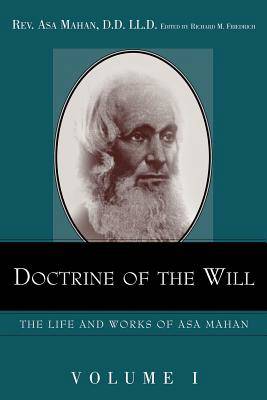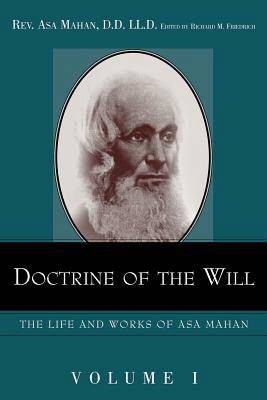
- Retrait gratuit dans votre magasin Club
- 7.000.000 titres dans notre catalogue
- Payer en toute sécurité
- Toujours un magasin près de chez vous
- Retrait gratuit dans votre magasin Club
- 7.000.0000 titres dans notre catalogue
- Payer en toute sécurité
- Toujours un magasin près de chez vous
Description
MAHAN ON THE WILL. This is an important work upon an important subject. The liberty of the human will I regard as a first truth. But like some other first truths, it has been extensively denied in theory. A most false and injurious philosophy of the will has extensively prevailed in the christian church, and has given birth to a brood of theological dogmas alike absurd and ruinous. The above named work was designed and is I think highly calculated to correct and rebuke the philosophy just alluded to. It is a fair, an able, and it seems to me a thorough statement and discussion of the subject, and a complete refutation of the dogma of a necessitated will. The book is small, cheap, and for a metaphysical discussion has the rare quality, of perspicuity. Since errorists every where teach and affirm the doctrine of a necessitated will, and since this is the stronghold of infidelity in all its forms, every youth and every person should acquaint himself with the truth and doctrine of the will and with the method of exposing error upon this subject. This treatise of President Mahan, presents the subject in a condensed form, and places it in a strong light. Every family should possess and make themselves familiar with this work. It needs only to be read and understood to be appreciated as a highly important work, and one which cannot fail to exert a most important influence in the cause of truth. Charles G. Finney, Dec. 1847. ASA MAHAN (1799-1889) was America's foremost Christian educator, reformer, philosopher, and pastor. He was founding president of two colleges and one university, where he was able to inspire numerous reforms, publish authoritative philosophical texts, and promote powerful revivals like his close associate Charles Finney. He led the way on all important fronts while being severely persecuted. He introduced the new curriculum later adopted by Harvard, was the first to instruct and grant liberal college degrees to white and colored women, advised Lincoln during the Civil War, and among many other remarkable achievements, was a father to the early evangelical and holiness movements.
Spécifications
Parties prenantes
- Auteur(s) :
- Editeur:
Contenu
- Nombre de pages :
- 184
- Langue:
- Anglais
Caractéristiques
- EAN:
- 9781932370355
- Date de parution :
- 25-01-05
- Format:
- Livre broché
- Format numérique:
- Trade paperback (VS)
- Dimensions :
- 152 mm x 229 mm
- Poids :
- 276 g

Les avis
Nous publions uniquement les avis qui respectent les conditions requises. Consultez nos conditions pour les avis.






